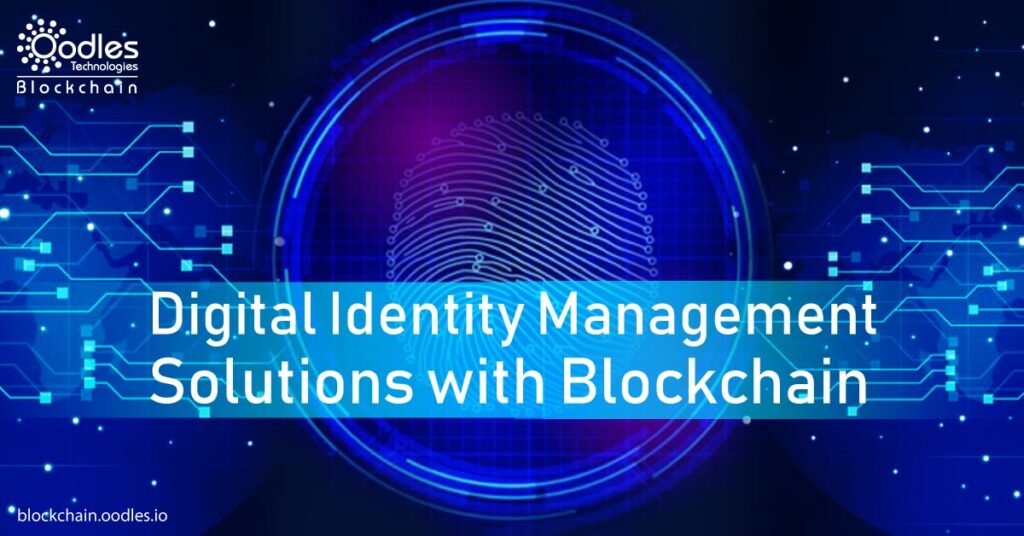
In an increasingly digital world, managing identities securely and efficiently is becoming a critical concern. Blockchain technology offers promising solutions for identity management, transforming how personal and organizational identities are verified and maintained. This article explores the current state of identity management on the blockchain, its advantages, and its future potential.
🔍 What is Blockchain-Based Identity Management?
Blockchain-based identity management utilizes blockchain technology to create, store, and manage digital identities in a decentralized and secure manner. Unlike traditional identity systems, which rely on central authorities and databases, blockchain-based systems leverage the decentralized nature of blockchains to offer a more secure and transparent solution.
Key Components:
Decentralization: Unlike traditional systems where a central authority manages identities, blockchain-based systems distribute the responsibility across a network of nodes. This decentralization reduces the risk of single points of failure and makes the system more resilient to attacks.
Immutability: Once information is recorded on a blockchain, it cannot be altered or deleted without consensus from the network. This immutability ensures that identity records are secure and tamper-proof.
Self-Sovereign Identity (SSI): SSI allows individuals to control their own identity data. Instead of relying on centralized authorities, users manage their identity attributes and share them selectively with service providers.
🚀 Advantages of Blockchain-Based Identity Management
Enhanced Security:
Data Integrity: The immutable nature of blockchain ensures that identity information is secure and cannot be altered without detection.
Reduced Fraud: Decentralized verification processes and cryptographic methods reduce the risk of identity fraud and unauthorized access.
Privacy and Control:
User Empowerment: Individuals have greater control over their personal data. They can manage who has access to their information and how it is used.
Selective Disclosure: Users can share only specific pieces of information with others, maintaining their privacy.
Efficiency and Cost-Effectiveness:
Streamlined Processes: Blockchain can automate and streamline identity verification processes, reducing the need for intermediaries and lowering administrative costs.
Global Accessibility: Blockchain-based identities can be accessed and verified globally, facilitating easier cross-border transactions and interactions.
Transparency and Trust:
Auditability: Blockchain provides a transparent ledger of all transactions and changes, making it easier to audit and verify identity-related activities.
Trust in Verification: The decentralized nature of blockchain increases trust in identity verification processes, as they are not controlled by a single entity.
🔮 The Future of Blockchain-Based Identity Management
As blockchain technology continues to evolve, its applications in identity management are likely to expand and become more sophisticated. Here are some trends and developments to watch for:
Integration with Emerging Technologies:
Artificial Intelligence (AI): Combining blockchain with AI can enhance identity verification processes, such as biometric authentication and fraud detection.
Internet of Things (IoT): Blockchain can facilitate secure identity management for IoT devices, ensuring that devices are properly authenticated and authorized.
Regulatory Developments:
Compliance with Regulations: As blockchain-based identity management becomes more widespread, it will need to comply with data protection regulations, such as GDPR. Ongoing discussions and regulatory frameworks will shape how these systems operate.
Adoption in Various Sectors:
Financial Services: Blockchain-based identity solutions are increasingly being adopted in the financial sector for secure and efficient customer onboarding and KYC (Know Your Customer) processes.
Healthcare: In healthcare, blockchain can provide secure access to medical records and improve patient data management.
User Experience Enhancements:
Simplified Interfaces: Future developments will focus on improving the user experience, making blockchain-based identity solutions more accessible and user-friendly.
Interoperability: Efforts will be made to ensure interoperability between different blockchain-based identity systems, enabling seamless interactions across various platforms and services.
Conclusion: Embracing the Future of Identity Management
Blockchain-based identity management represents a significant advancement in how identities are created, verified, and managed. With its focus on security, privacy, and decentralization, blockchain offers a compelling alternative to traditional identity systems. As the technology matures and integrates with other emerging technologies, it has the potential to reshape identity management across various sectors. Embracing these changes and understanding their implications will be crucial for individuals, organizations, and policymakers as we move toward a






